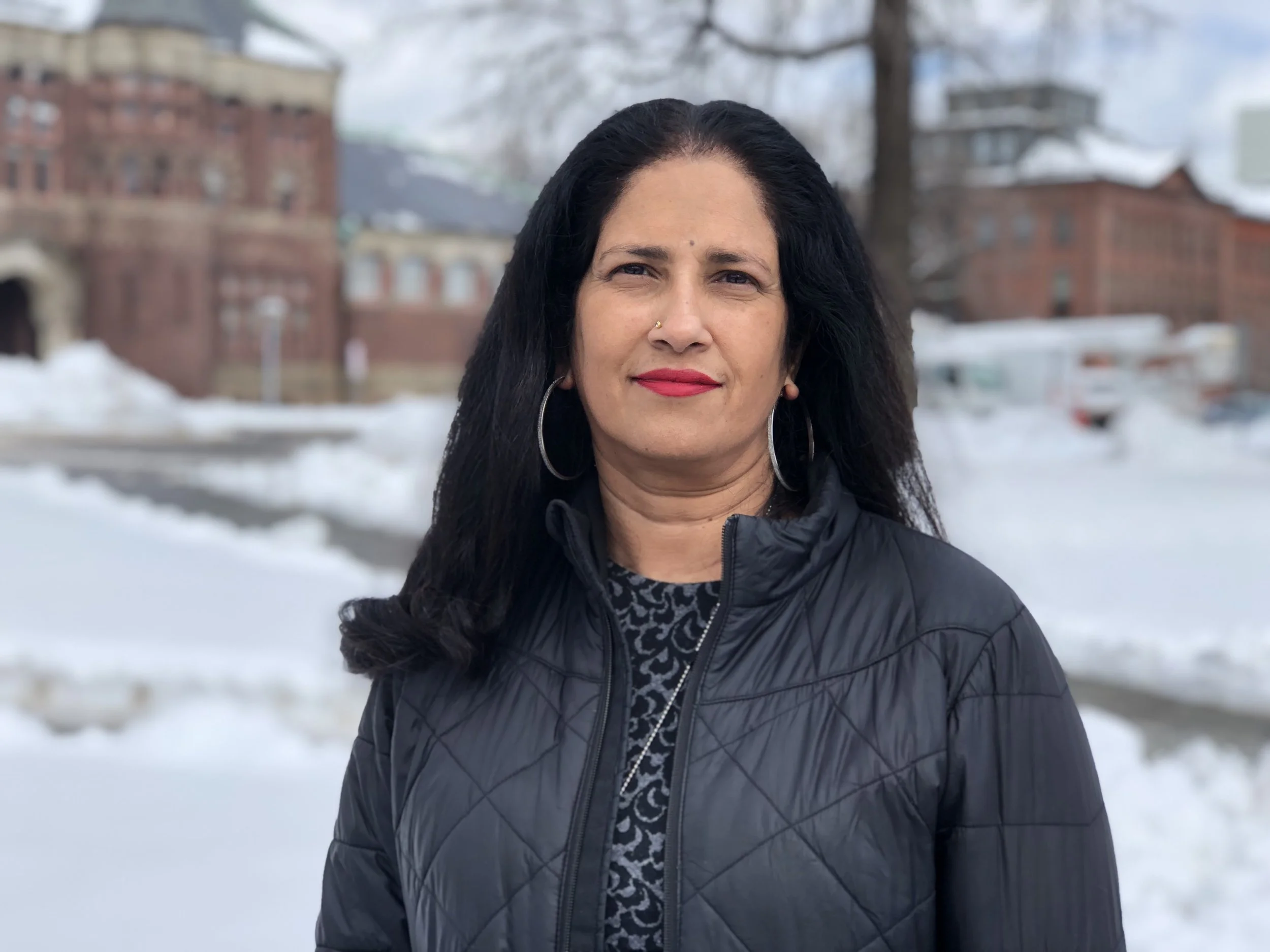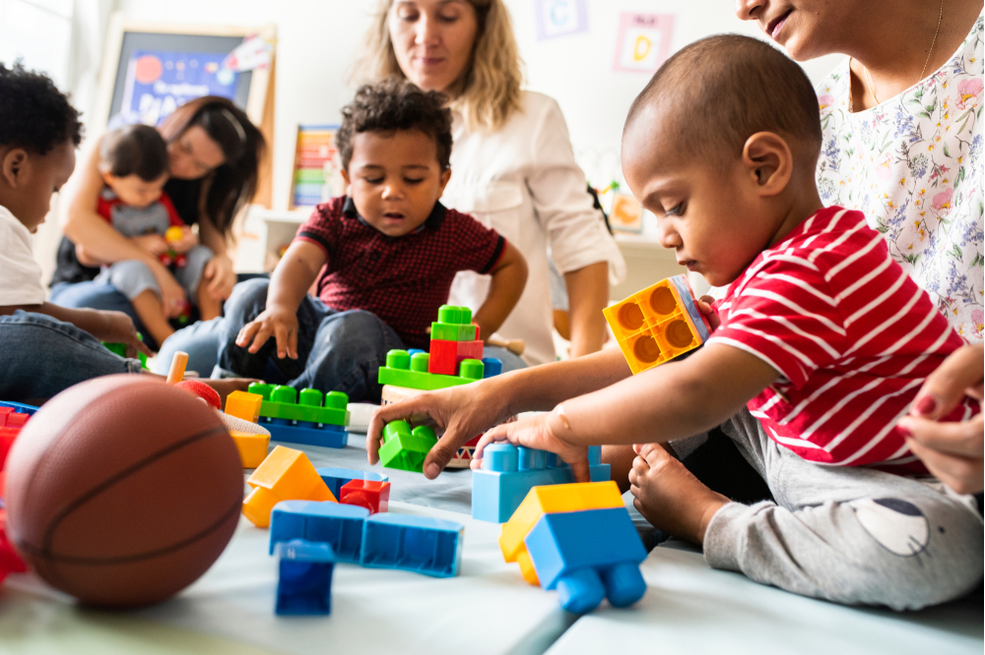On the Same Page: An Early Childhood Education Collaborative With Some Big Backers
/photo: MB Images/shutterstock
Editor's Note: This article was originally published on March 28, 2018.
A collaborative for early education has attracted some big names, while urging funders to stop picking favorites within the field and focus instead on convening stakeholders and encouraging collaboration.
The Trust for Learning is a group of grantmakers focused on closing the achievement gap through expanding the availability of what the group calls “ideal learning” programs, especially to kids least likely have access to early education. Ideal learning draws from common principles found in a number of approaches, including Montessori, Reggio Emilia, Friends, Tools of the Mind, Bank Street College of Education and Waldorf. Ideal learning emphasizes equity, personalization, play and the relationship between child and teacher, but intentionally leaves room for different models. The collaborative also works to build demand for early childhood education through advocacy and marketing.
The group started back in 2013 with a $150,000 gift from the McCall Kulak Family Foundation, but has expanded to include more than a half-dozen funders, including the Brady Education Foundation, the Buffett Early Childhood Fund, the Stranahan Foundation, the Walton Family Foundation, and several others.
In the collaborative’s own words, “Grantmakers must be careful about presuming that they can each bring about sector-level change on their own—even with unlimited resources, they must coordinate their efforts, either through direct partnerships and alliances, or minimally through organized and regular knowledge-sharing.”
Trust for Learning’s wise words of warning come at a time of growing philanthropic investment in early childhood learning. Initiatives still tend to be local with funders investing in the cities where they live, but the investments add up. In Detroit, the W.K. Kellogg Foundation and Kresge Foundation recently pledged $50 million over the next three years as part of a 10-year project to make the city a haven for early childhood learning. The Kenneth Rainin Foundation in Oakland and William Penn Foundation in Philadelphia are leading work on a smaller scale in their own cities.
Meanwhile, some new national funders have appeared on the scene. Earlier this month, the Chan Zuckerberg Initiative announced a $30 million investment in a push to get every child reading at grade level by third grade. CZI hadn’t done a lot of work in the space previously, but this gift could be sign of bigger things to come.
Of course, any rundown of early childhood learning would be incomplete without mentioning J.B. Pritzker. The heir to the Hyatt hotel chain has done a lot of work in Chicago, but is also one of the few funders to expand into national work. The J.B. and M.K. Pritzker Family Foundation put up $25 million as part of a federal program to promote early childhood learning in 2014. More recently, the couple pledged $6.5 million to a one-year pilot program to scale local networks and practices nationally.
All of which is to say that there’s been a real uptick in philanthropic money going into this space lately, after many years in which most funders took a pass on early childhood education. Several factors account for this shift—such as rising worries about inequality, new research on brain development, and emerging donors looking to make their mark. Although there have been a few national pushes, most of the work happens through funders working with local partners with little collaboration across regions or even cities. It's noteworthy that Trust for Learning is a national collaborative that brings together several foundations from a few different funding areas.
Speaking of the foundations, Trust for Learning has assembled an interesting bunch that approach early childhood learning from several angles.
The Buffett Early Childhood Fund and Brady Education Foundation are two organizations behind the collaborative with a pretty consistent track record of investing in early childhood education. The Buffett Early Childhood Fund tends to invest in a small number of grantees for the long haul. The fund estimates it’s invested $150 million in the space since it started in 2005. It doesn’t have its own endowment, but instead relies on disbursements from Warren Buffett’s children’s philanthropic vehicles, the NoVo and Sherwood foundations.
The Buffett Early Childhood Fund maintains a fairly narrow scope, which is one reason its involvement in the Trust for Learning is so notable. It mostly gives grants to a few long-term partners, including the Center for the Developing Child, Educare, Alliance for Early Success, First Five Years Fund and the First Five Nebraska. The outfit also has a funding relationship with early education researchers James Heckman and Frank Porter Graham. The fund is collaborating with Trust for Learning and the Stranahan Foundation on evaluation tools for early education environments. Based on the fund’s relationship with other grantees, it’s likely the funder is in Trust for Learning for the long haul.
The Brady Education Foundation is another early childhood education veteran involved in the collaborative. The foundation has focused exclusively on early childhood education work since 2001. Its main focus is funding the evaluation of early childhood learning programs. That's an important front, and not just because of fierce, long-running debates about whether interventions in this area actually work. More elected officials from both parties, especially at the state level, are looking at new investments in early childhood and are more likely to act if advocates can make strong, evidence-based arguments.
The Stranahan Foundation and McCall Kulak Family Foundation, a founding member of the trust, also historically support early childhood learning. McCall Kulak is also a big backer of Montessori education. We don’t cover a lot of philanthropic support for Montessori at IP, but it’s something of a through-line for this grantmaking collaborative.
The group includes Montessori principles in its definition of ideal learning. The Brady Education Foundation recently announced an initiative in support of Montessori learning. The Harold Simmons Foundation, another member of the collaborative, includes support for Montessori schools in its giving.
Early childhood learning funders aren’t the only ones backing the collaborative, though. The Walton Family Foundation is another big name in education philanthropy getting involved in Trust for Learning, but the funder is better known for its work backing charter schools and school choice.
Last year, the foundation pledged $1 billion to K-12 education over the next five years in a plan that involves scaling up charter schools, improving their talent pipeline, as well as getting into research and advocacy. That was on top of the $250 million in 2016 that went to expand charter schools in 17 cities.
In the past, early childhood education has not been a priority for the foundation, though it does support Pre-K programs in at least some of the districts it funds. As we've reported, Walton seems to be going through changes as a younger generation of heirs tilts the foundation toward their interests and begins funding outside of WFF's main program areas through an expanding Special Projects portfolio. James Walton, a grandson of Sam and Helen Walton and a believer in the Montessori Method, is on the Trust's board of advisors. In 2016, WFF awards $450,000 in two grants for Montessori organizations. Needless to say, if WFF ever did really get into early childhood learning, that could be huge for the field.
The flux in the early childhood education funding space is intriguing right now. Trust for Learning is another example of the action in this space—along with the view that more action increases the imperative for effective collaboration.
Related:







































